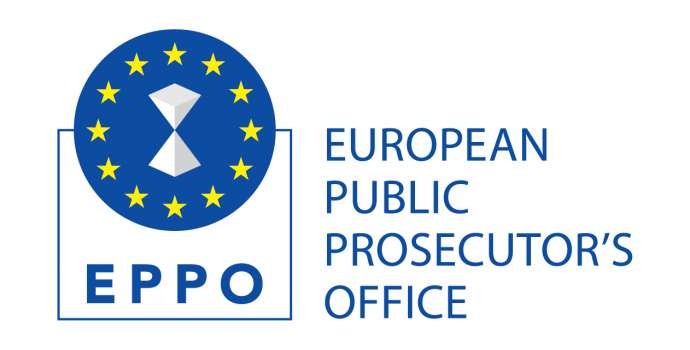STA, 7 December - One should wait for a more detailed analysis of the situation in Slovenia regarding the prosecution of crimes against the EU's financial interests, the bloc's chief prosecutor Laura Codruta Kovesi has told the STA. However, given the statistics so far, she has zero doubts that the country's European delegated prosecutors (EDP) will be "very busy".
Slovenia's two delegated prosecutors Tanja Frank Eler and Matej Oštir assumed their offices on 1 December, hence the European Public Prosecutor's Office (EPPO) has been launched in the country after a months-long delay in the appointment procedure.
It is too early to give any assessment of the current situation, but the EU's chief prosecutor told the STA on Monday that she had no doubts the office will launch investigations in Slovenia.
As concrete investigations get under way, it will become clear how the police and other law enforcement authorities work and how ready they are to cooperate with the EPPO.
The EU's recovery fund will bring more money, "more flexibility, less rules", meaning higher risks to see more crimes against the EU's budget, she said, noting that the level of detection of such crimes should be stepped up. Slovenia is not alone when it comes to having a detection system that should be improved.
Slovenia's State Prosecutor General Drago Šketa told Monday's joint press conference with Kovesi that there are 20-30 investigations currently open in the country. The cases will now be transferred to the EPPO office in Ljubljana.
On top of these investigations, delegated prosecutors Frank Eler and Oštir will also help out their colleagues in other EPPO member states in cross-border investigations involving Slovenia. "They will be very busy," Kovesi said.
Commenting on the delay in appointing the Slovenian delegated prosecutors, the EPPO head said: "It was a huge problem because we couldn't investigate cases from Slovenia." This also affected the cross-border investigations, she added.
"This was a big problem in the entire architecture put in place by the EU to protect the European money because it was a gap in the EPPO zone."
Kovesi reiterated what she already said at the online press conference on the occasion of her visit to Slovenia - that the appointment of Frank Eler and Oštir is final.
"According to the EPPO regulation, no member state can dismiss European delegated prosecutors because they would like to appoint different ones. They are appointed for five years. This is the end of the story."
Commenting on the government-sponsored changes to the public prosecution legislation that would enable the government to recall delegated prosecutors and give it a greater say in their appointment procedure, Kovesi insisted that "no national legislation can contradict the EPPO regulation".
"The EPPO regulation and EU legislation have priority over any national law; this is the rule." If there is a provision that is in breach of the regulation, the EPPO informs the European Commission of this. They already did this in relation to some provisions in other member states, she said.
The terms of delegated prosecutors are renewable and the EPPO college can appoint them for another five years, she added.
The regulation does not set down how the EPPO members should nominate their EDP candidates, and the methods vary according to the participating countries, but all their justice ministers were urged to make sure the procedures are transparent and based on an open call, including Slovenia's former Justice Minister Lilijana Kozlovič.
So far, Kovesi has not had an official meeting with the country's current Justice Minister Marjan Dikaučič.
Asked about reasons for not meeting him today, she said: "I did not ask for a meeting, I came here to talk with the prosecutors about the problems we have in the EPPO and challenges. I don't have anything to discuss with the minister of justice at this moment. Maybe in the future we will have something to discuss."
She also highlighted the points made at the news conference about the importance of judicial independence, noting that any attempts against judiciary are an attempt against the rule of law.
If there are attempts to undermine the independence of prosecutors, they should stand up, she said, adding that "they are not alone" as the EPPO is also an independent body. "If you are not independent, you cannot be efficient," she said.







